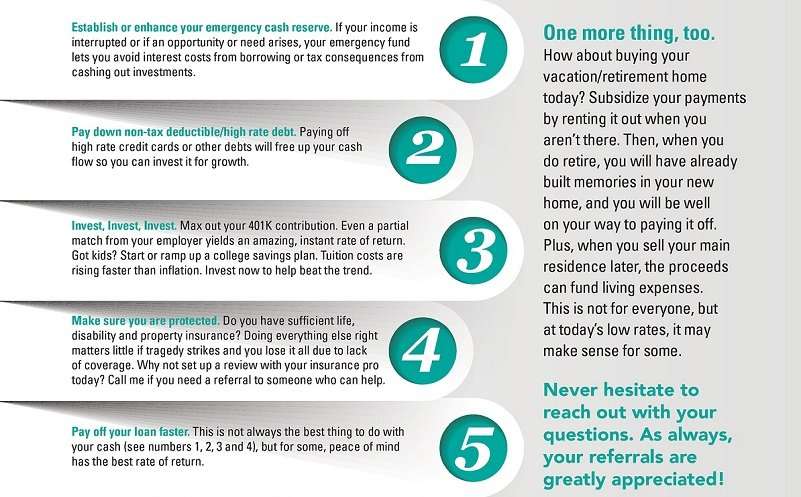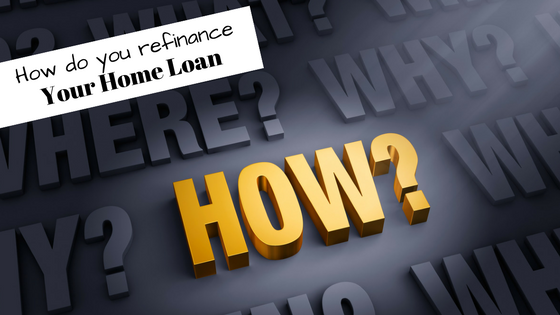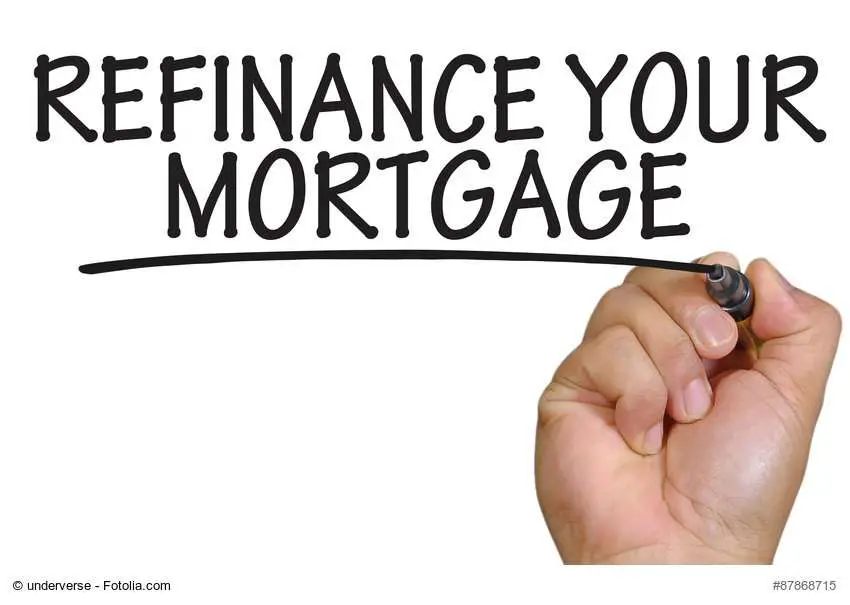What Is A Comparison Rate
A comparison rate is designed to help you work out the total cost of a home loan by building the known costs like up-front and ongoing fees into that rate. It doesnt include things like government charges, redraw fees or fee waivers.
You can use comparison rates to help you compare the cost of different home loans with similar features. When deciding which home loan is right for you, its important to think about what features each home loan offers, and how much these matter to you. Keep in mind that you may not necessarily pay the comparison rate that is advertised for your loan type. This is because, for example, you may not pay all the fees and charges which the comparison rate includes.
How Much Does Refinancing Cost
The cost of refinancing your mortgage can vary from lender to lender. However, closing costs for a refinance are generally between 2% and 5% of the total loan amount.
Here are some of the most common refinancing fees that you might encounter:
| Fee |
|---|
Learn More: How Much Does It Cost to Refinance Your Home?
How Does Refinancing Work
Using an example, lets say you borrowed $400,000 at a 4% interest rate and are repaying it over 30 years. Several years after you took out that mortgage, youve paid down your principal balance to $375,000, interest rates have dropped, and your credit score has increased. You refinance your mortgage at a 3.5% interest rate with the same 30-year term, which lowers your monthly payment as you have less interest to pay. The trade-off is that your loan term starts over, and youll be making payments longer to repay your new mortgage.
Thats just one of many different approaches you can take with refinancing. If youre looking to shorten the length of your term and pay off your mortgage more quickly, you can refinance from a 30-year loan into a 15-year loan. Youll likely pay less in interest but face a higher monthly mortgage payment.
You also could tap into your homes equity and borrow cash at a lower interest rate by refinancing for a larger mortgage. Equity is the difference between what your house is worth and how much you owe on it. Over time, equity grows if the value of your home appreciates and you pay down the mortgage principal. You can use the cash from refinancing for any purpose, but you must repay it as part of your new mortgage. Many homeowners use this money to fund home improvements or other major expenses, pay for college, or retire high-interest debts like credit cards.
Don’t Miss: Va Manufactured Home 1976
Wait For Some Time To Refinance Your Home
Depending on the type of mortgage you desire and the lender you wish to opt for, you will always need to wait for some time. However, there are some typical wait times you may have to experience during this time.
Loan Modification
In case your original loan was modified to make your loan payments affordable, there may be a requirement for you to wait for nearly 24 months to refinance.
Cash-Out Refinance
In case you are thinking about a cash-out refinance, in this case, you might have to wait for six months after your original mortgage closes.
FHA Loan
To refinance an FHA loan, you might have to wait for nearly 210 days.
Refinance To Access Home Equity As Cash

As you pay off your mortgage, you’ll gradually build up equity in your home. Your home equity is calculated by taking the current value of your home, then subtracting from that your outstanding mortgage amount. Many lenders will allow you to borrow from them, using your home equity as security for the loan – this is what accessing your equity is all about.
If youâre considering a refinance to access your home equity, youâre not alone. According to the Canadian Association of Mortgage Professionals, last year 10% of Canadian mortgage holders accessed an average $49,000 of equity from their homes. The large majority of this equity was used for debt consolidation or home renovation.
If refinancing for equity, the first thing you want to determine is the maximum amount of equity you can access. In Canada, mortgage holders can access a maximum of 80% of their home’s value, less any outstanding mortgage balance. Unfortunately, accessing this equity comes at a cost â your lender will change you a penalty for breaking your mortgage early. Use Ratehub.caâs refinance calculator to determine your maximum equity and the corresponding penalty. If youâre refinancing in a falling interest rate environment, you may be able to take advantage of interest savings as a bonus.
You May Like: How To Transfer Car Loan To Another Person
Take Your Financial Temperature
Just like your original home loan, your new mortgage requires approval. Do you have a good to excellent credit score and a low debt-to-income ratio? The better your finances, the better your potential loan terms.
If your credit score could use a little work or you have lots of outstanding loans you can pay off, its in your best interest to work on improving it before applying for a new loan.
Your Loan Terms May Change
When you get a cash-out refinance, you pay off your original mortgage and replace it with a new loan. This means your new loan may take longer to pay off, your monthly payments may be different or your interest rate may change. Be sure to look at the Closing Disclosure from your lender and analyze your new loan terms.
Don’t Miss: How To Get An Aer Loan
Home Refinancing Costs To Consider
Refinancing comes with closing costs, just like your current mortgage. Closing costs on a refinance average about $5,000, according to Freddie Mac.
Though this list isnt exhaustive, here are some common closing costs you can expect to pay when refinancing:
- Appraisal fee: An appraisal determines how much your home is worth and the amount you can borrow, and is typically required by lenders. This service usually costs around $300 to $500.
- Discount points: Points are upfront charges that can help you get a lower interest rate. The cost will depend on how much your lender charges, as well as how many points you choose to buy.
- Loan origination fee: Your lender charges a fee to set up your loan and cover the cost of underwriting, which is the process of verifying that youre able to repay your mortgage. This fee typically runs 0.5% to 1% of the loan amount.
- Private mortgage insurance: If youre taking out a conventional loan and your down payment is less than 20%, then you will need to purchase PMI, which protects the lender if you default on your mortgage. PMI costs roughly $30 to $70 per month for every $100,000 in your loan.
- Title search fee: This covers the cost of a title search, which reveals any existing claims on the home, such as unpaid taxes. A title search generally costs between $75 and $200.
How Many Times Can I Refinance My Loan
Theres no limit to how many times you can refinance your home loan. However, you might want to check if any waiting periods apply to your current loan, or if there are any fees or charges associated with ending or changing your existing loan.
The more important consideration is whether or not it makes sense to keep refinancing when you add up all the costs, such as early repayment costs , loan approval fees and legal fees. Make sure that any savings you get from refinancing will more than cover the costs of refinancing.
Read Also: What Car Loan Can I Afford Calculator
How A Student Loan Cash
If you’re considering cash-out refinance, it’s important to consider the pros and cons. This article will break down what you need to know.
Christy Rakoczy Bieber
If you have student loan debt, you may be interested in finding creative ways to repay it. A student loan cash-out refinance is one option available to you.
A cash-out refinance isn’t available to everyone, though, and there are pros and cons to consider before you refinance to pay off student loans. Here’s what you need to know.
Lower Your Interest Rate
Mortgage interest rates are currently very low and if they have gone down since you took out your mortgage, refinancing onto a lower rate could significantly reduce your monthly payments.
Since housing is typically everyones largest expense, reducing your housing costs will enable you to spend more in other areas, or free up more cash to save and invest for your future.
Don’t Miss: How To Find Student Loan Number
Get A Lower Interest Rate
If mortgage rates have dropped since you received your loan, you’re in luck. You can take advantage of reduced interest ratesOpens a popup. and lower monthly payments by refinancing your mortgage. Refinancing your balance with a lower interest rate is called rate-and-term refinancing. Even a slight reduction in the interest rate can lower your monthly payments.
Have The Cash To Pay Closing Costs

Closing costs usually vary from 2% to 5% of the loan principles. Typically, the closing price on a mortgage refinance is nearly $5,000. For this, you need not have cash in hand. All you will need is to pay the cost upfront and pay sufficient money on interest charges timely. That is why it is essential to follow up on this closely.
You May Like: How To Find Student Loan Number
What Is A Sofi Cash
Many different mortgage lenders offer cash-out refi loans. You do not have to choose a lender that specifically markets a student loan cash-out refinance program. That’s because lenders typically don’t care what you do with the money you get back with a cash-out refinance. You can use it to repay student loans if you want or to improve your home and pay down other debt.
However, there is a specific Fannie Mae feature called a student loan cash-out refinance. And SoFi is a partner lender that offers this specific loan. If you choose this option, there are additional requirements to meet. For example, the proceeds from the cash-out refi must be paid directly to the lender, and your student loan must be repaid in full.
What Are The Alternatives To Refinancing Your Home
Rather than refinancing their home in whole, some homeowners who have built up significant equity & currently enjoy a low-rate loan can use a home equity loan or line of credit to tap their equity without resetting the rate on the remainder of their existing debt. A home equity loan is a second mortgage which operates similarly to the first mortgage, but usually charges a slightly higher rate. A home equity line of credit operates more like a credit card, as a revolving form of debt which can be drawn upon & paid off as convenient.
Also Check: How To Find Student Loan Number
Break Your Existing Mortgage Contract Early
You would consider breaking your mortgage early if you wanted to obtain a lower interest rate or access equity from your home. In this case, you eliminate your existing mortgage and take on a brand new one with any lender. Breaking your mortgage will incur a prepayment penalty from your bank, which is normally equal to around three months worth of interest charges. If you can justify the cost of the prepayment penalty with your new mortgage rate, then breaking your mortgage can still be worth it.
How To Refinance A Home Loan
Refinancing your home loan may be very rewarding. In the right circumstances, it could save you interest or time on your loan. It could also give you better features that save you money or otherwise make life easier for you.
Refinancing is when you get a new loan from your current or new lender that may improve your financial position. Improvement could be cheaper interest and fees, better repayment terms or better features.
At Westpac, a home loan refinance is different to a home loan increase, which gives you a way to borrow from the equity in your current loan.
Also Check: How To Reclassify A Manufactured Home
When Is Refinancing A Bad Idea
Its tempting to want to refinance when you see how low the current market rates are, and how many other people are doing it. However, after considering your own circumstances, you might find that refinancing isnt a good choice for you if one of these situations applies.
- Youll extend your loan term substantially. Suppose youre five years into a 30-year mortgage. If you refinance into another 30-year loan, youre putting yourself in a situation where youre paying a mortgage for 35 years instead. Since you mostly pay interest during the first years of a 30-year loan, this type of refinancing can be costly in the long run even if it lowers your monthly payment in the short run.
- When your break-even period is too long. If refinancing into a shorter term is not an option, youll want to calculate your break-even point. Divide your closing costs by your monthly savings to see how long it will take you to come out ahead by refinancing. For example, if youd pay $3,000 to refinance into a new 30-year mortgage that saves you $200 a month, it would take you 15 months to break even. If you planned to sell your home in a year, you would lose money by refinancing.
Costs Of Refinancing Your Mortgage
The cost to refinance your mortgage depends on the strategy you use to access equity or lower your interest rate. No matter which strategy you use you will always incur legal costs, as a lawyer must change the financing on title. The good news is if your mortgage balance is greater than $200,000, many brokers and/or lenders will cover this cost.
If you are breaking your mortgage in the middle of your term to access equity or lower your interest rate, your lender will charge you a prepayment penalty. For fixed mortgage rates this penalty is the greater of three months interest or the interest rate differential payment . For variable mortgage rates this is simply three months interest.
Also Check: How To Transfer Car Loan To Another Person
How Many Times Can You Refinance A Home Mortgage
Therefore, the new loan pays off the old one, and you begin paying your new lender. Trading in an old home mortgage for a new one can reduce your interest rate, but raise the amount you’ll pay long term. Refinancing is a big decision, and right now interest rates are effectively zero. Start investing your spare change into your. Unfortunately, we live in an unpredictable world, and when pay gets cut or unexpected medical bills come through and finances suddenly get tight, it.
Know Your Credit Score

Lenders have tightened their standards for loan approvals in recent years. Some consumers may be surprised that even with very good credit, they will not always qualify for the lowest interest rates. Typically, lenders want to see a credit score of 760 or higher in order to qualify for the lowest mortgage interest rates. Borrowers with lower scores may still obtain a new loan, but the interest rates or fees they pay may be higher.
Also Check: Mortgage Commitment Fee
Alternatives To A Student Loan Cash
There are other ways to reduce your student loan interest rate and make repayment easier that do not involve a student loan cash-out refinance that puts your home in jeopardy.
For example, you could consider a private student loan refinance loan. That would allow you to refinance and change the terms of your existing student loan debt without your mortgage being impacted at all. Juno can help you qualify for very competitive rates for a student loan refinance loan, as we get groups of borrowers together and harness the power of collective bargaining to make lenders compete for their business.
Free Up Money To Invest
When you take into account the power of compounding interest, it can be a smart move to free up money and save toward retirement early rather than keep your funds tied to your home. Cash-out refinances give you access to funds that you can use to boost your retirement savings or build up a college fund.
Read Also: How To Transfer Car Loan To Another Person
Prepare For The Appraisal
Even though you had the house appraised when you bought it, youll likely need another appraisal to refinance. It helps the lender verify that your new mortgage matches the homes current value. You might not need a second appraisal, however, if you have a loan backed by the Federal Housing Administration, the Department of Veterans Affairs, or the Department of Agriculture, as those agencies offer a streamlined refinancing process for FHA loans, VA loans, and USDA loans, respectively.
Refinance To Lower Your Mortgage Rate
To determine if you can save money with a lower mortgage rate, use our calculator to compare the monthly interest savings against the cost to refinance. As most mortgage brokers and lenders will cover your legal costs, the main cost you need to worry about is your break of mortgage penalty, or prepayment penalty. This penalty is charged by your lender for breaking your mortgage contract early and is based on your original contract date, current mortgage balance, mortgage rate, and other factors.
Also Check: Loan Originator License California
No Need To Worry About Refinancing Too Soon
Refinancing is worth it if you discover that you can save monthly or over the life of the loan.
Most mortgage shoppers arent at risk of refinancing too soon and can apply even shortly after their previous loan closes.
Check your refinance savings and dont miss out on lower housing costs.
Popular Articles
Step by Step Guide
